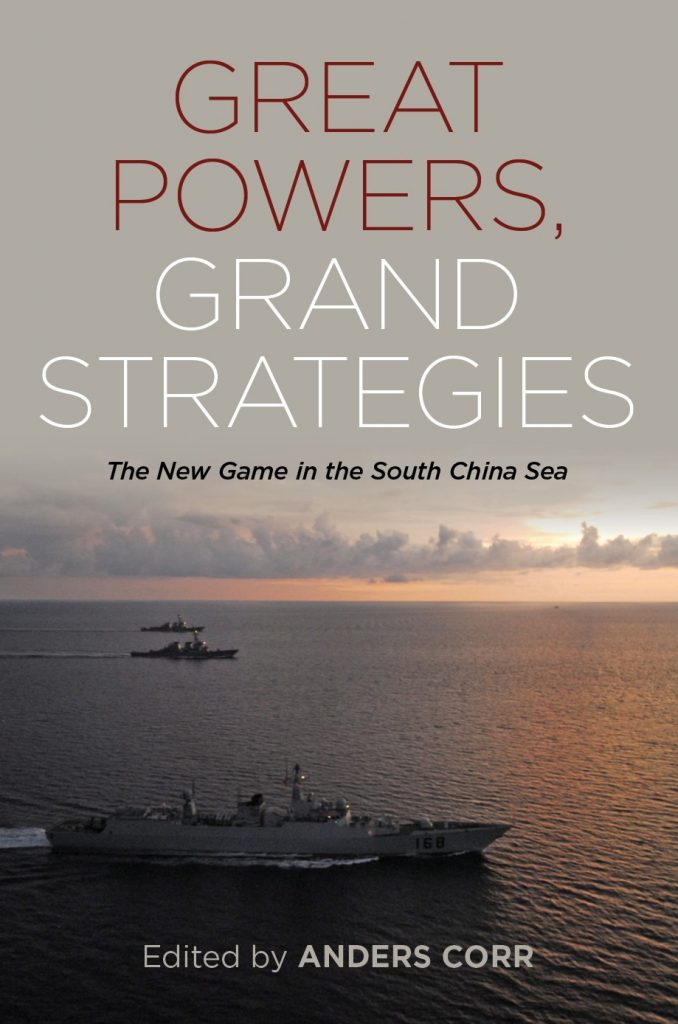

Great Powers, Grand Strategies: The New Game in the South China Sea. Anders Corr ed. Naval Institute Press, Annapolis, 2018.
Reviewed by Chris Buckham
Very few arenas of the globe have the potential for overlapping geopolitical interests as does the South China Sea. Replete in resources, focus for international trade routes, experiencing growing populations and border to numerous island and mainland states; it is a region in dispute.
Central to this concentration of competing interests sits China who, for the last twenty years, has been increasingly assertive in its dealings with not only neighbouring claimants to the region but also other great powers. Presented in a series of individual essays edited by Anders Corr, Great Powers, Grand Strategies provides a timely and insightful analysis of the many facets of this new region of Great Power politics.
Three of the chapters focus exclusively on the Chinese perspective, two from the US perspective and one for each of the remaining powers: Japan, India and Russia. Notably, the book also addresses the perspective of regional ASEAN and EU concerns. The analysis is robust and the data presented in a comprehensive and informative manner. The information provides the reader with concrete examples to explain the actions and concerns of the nation states involved.
Interestingly, while the information is extremely insightful and useful in and of itself, the narrative, overall, does leave the reader with a lack of an overarching framework for the contributors’ chapters to be contextually better understood. Great powers will generally act according to certain broad characteristics that are better understood when explained at the outset of the work. These characteristics manifest themselves within different international relations theories. Thus, if one had been presented with a synopsis of the Realist or Constructivism schools and their sub-components and were then able to view the actions of the Great Powers through these lenses, it would assist the reader with an improved context to explain the ‘why’ behind a Great Power’s actions while using the data as tangible examples. Constructivism postulates that a nation will draw upon its belief systems (identified within historical, cultural or social contexts) rather than material gain as the foundation of its actions. Realism, on the other hand, suggests that the goal of any nation is the accumulation of power to eclipse or offset the power of its rivals (perceived or otherwise).
This observation, notwithstanding, Great Powers, Grand Strategies is an excellent synopsis of the confluence of international interests and challenges in the South China Sea. The work is timely given the ongoing stresses manifesting themselves as China expands its military and economic influence in the region. I recommend this work to those seeking to understand the potential impacts of the Great Power’s actions, the reasoning behind them and the methodologies that support them.



